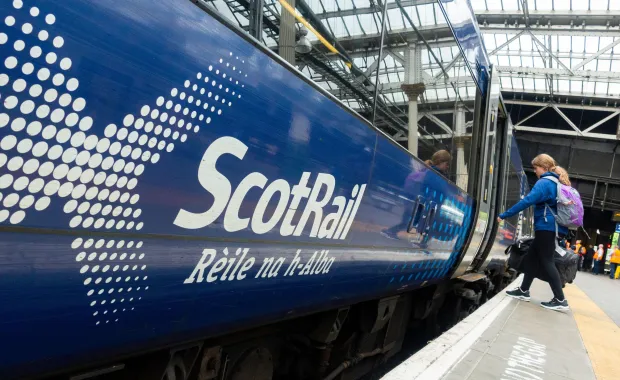Latest reports suggest that Scottish ministers will reintroduce peak rail fares across the country after an experiment with flat rate fares failed to significantly increase passenger numbers.
Trade unions and opposition parties have already expressed their criticism of the decision while also accusing the Scottish government of presiding over a shambolic rail service and of failing to adequately tackle the climate crisis.
Recall that the year-long pilot scheme to abolish peak fares was introduced as part of the Scottish National party’s power-sharing deal with the Scottish Greens. It was designed to encourage people to cut their car usage and mitigate soaring living costs.
Data from the government agency Transport Scotland shows that vehicle ownership hit a record level of 3.09m in 2022, of which 82% were cars; 75% of Scottish households had access to one or more cars.
Earlier this year the UK Committee on Climate Change, an official advisory body, said Scotland’s climate targets were “no longer credible”, in part because ministers had failed to prove how they would cut car kilometres by 20% by 2030.
Read also: Data shows 54% of journeys take under six hours by train
Fiona Hyslop, the Scottish transport secretary, revealed on Tuesday that the pilot had increased rail usage by only 6.8%, at a cost of £40m, with better-off passengers and frequent train users the main beneficiaries.
She said passenger numbers needed to grow by at least 10% to make it self-financing, and the additional subsidy was currently unaffordable given the intense financial pressures facing ministers.
As a result, peak fares will be reintroduced across all ScotRail services from 27 September, pushing the cost of a return fare between Edinburgh and Glasgow up to £31.40. A discount on annual season tickets and multi-buy tickets would help soften the blow, Hyslop added.
“The pilot will have been welcome in saving many passengers hundreds and in some cases thousands of pounds during the cost of living crisis but this level of subsidy cannot continue in the current financial climate on that measure alone,” she said.
The Scottish TUC and the rail union Aslef said scrapping flat rate fares was shortsighted and regressive.
Alex Rowley, Scottish Labour’s transport spokesperson, said cuts to rail services and changes to timetables due to a shortage of drivers had left ScotRail services in chaos, and that was partly to blame for the low take-up of flat rate fares.
Story was adapted from the Guardian.
